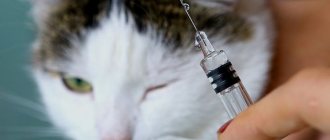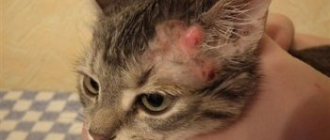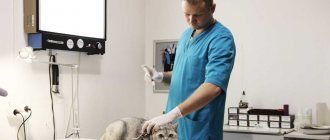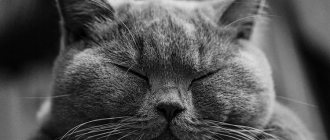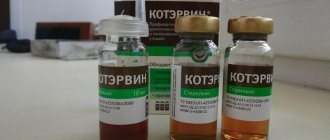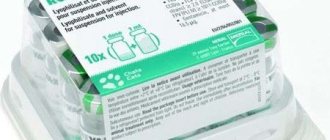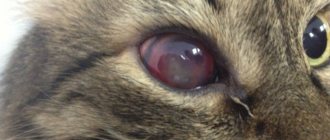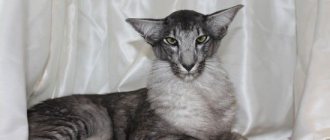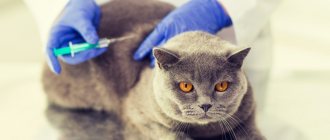A small purring pet that appears in your home requires the same reverent and attentive attitude as other family members, because in fact, it is part of your family circle, and its possible illnesses and troubles will also bother you. When is a comprehensive vaccination for cats ? What does it include?
Cats, like us, are susceptible to infectious diseases, some of them are deadly for mustachioed babies, so every responsible owner immediately thinks about vaccinations for their kitten. The same applies to an adult cat. What vaccines exist for cats, what is the procedure for vaccinations for cats, and what do you need to know about modern vaccines?
Diseases for which cats are vaccinated
Regardless of whether a pet lives in an apartment, a country house, or has access to the street, it certainly needs disease prevention. Some diseases occur more often, others less frequently, and only thanks to mass vaccination of animals. However, there are a number of diseases that deserve special attention:
- Panleukopenia. People have cat distemper. A serious disease that can threaten the life of the animal. The virus is quite tenacious; it cannot be killed by heat treatment and disinfectants. The source is the excrement of an infected animal.
- Feline herpes. Affects the respiratory system. The greatest danger is for kittens. An animal can become infected through direct contact, as well as through food. Vaccination does not provide 100% protection, but in case of illness, it can alleviate its course. Having recovered from the disease, the cat remains a carrier of the virus.
- Rabies. A dangerous disease for both animals and humans. It has a fatal outcome, so vaccination has special meaning. In many countries, rabies vaccination is mandatory.
- Chlamydia. Affects the mucous membranes of the eyes and nose. Vaccination is not able to completely protect against infection, but it significantly facilitates the course of the disease.
- Giardiasis. The cause is single-celled organisms. The first symptom of infection is diarrhea. If several animals live in the house, experts strongly recommend vaccinating them.
- Feline bordetellosis. Respiratory tract disease. Symptoms are similar to many viral infections: runny nose, watery eyes, cough. It is transmitted through animal contact with each other. It is recommended to vaccinate cats in shelters and places where there are large concentrations of animals.
- Feline infectious peritonitis. A dangerous disease transmitted through direct contact.
- Feline immunodeficiency. Infection occurs through bites and wounds. The disease does not manifest itself for a long time, causing harm to the body without visible symptoms.
Is it possible to combine vaccination with treatment with biological drugs and ASIT?
According to specialists from the Russian Association of Allergologists and Clinical Immunologists (RAACI), evidence of the safety of the use of biological drugs for the treatment of severe asthma and vaccination has been obtained only for dupilumab, omalizumab and benralizumab. There is no data on how much these drugs weaken the effect of the vaccine. Doctors recommend taking a week's break between taking biologic drugs and getting vaccinated against COVID-19.
There are no data on the effect of allergen-specific immunotherapy (ASIT) on antibody production that occurs after vaccination. A number of recommendations have been developed for patients undergoing ASIT using the injection method with water-salt allergens:
- Vaccination is not permitted during the dose escalation phase.
- The vaccination is not given on the same day as the allergen injection (7-10 days after the injection)
- The next dose of the allergen can be administered 3 weeks after vaccination if there are no adverse reactions to the vaccine
When performing ASIT using the sublingual method, it is recommended to stop taking the allergen on the day of the vaccination procedure and 1-2 days after it. If no adverse reactions to the vaccine occur, the administration of the allergen can be continued.
What vaccinations does a kitten need and when?
Kittens are endowed with a weak, immature immune system, so the first vaccinations need to be done at an early age. List of diseases against which kittens are vaccinated, regardless of breed:
- Plague.
- Feline leukemia.
- Infectious peritonitis.
- Panleukopenia.
- Viral rhinorrhitis.
Some experts advise carrying out the first vaccinations at 2-3 months.
When to vaccinate kittens
Children at this age are given polyvalent vaccines that protect against several diseases at once. After three weeks, you need to revaccinate with the same drug. After which the baby should receive the next injection at the age of one year, then annually.
If an older kitten comes into your home, then starting from six months after the first vaccination, revaccination is not required. The next injection should be given after a year.
In order not to forget when it is necessary to vaccinate, information about the vaccination done should be entered in the medical passport. You must also enter the name of the drug, its series, and number.
Separately from vaccination with the polyvalent vaccine, an injection against rabies is given. It is recommended to carry out it when the kitten begins to contact other animals, at approximately 3 months. If the pet does not go outside, it is better to carry out the procedure later, at 6-8 months, when the baby is a little stronger. Revaccination is required every year at approximately the same time.
The rabies vaccine is quite aggressive for a weak body, so the kitten may experience a number of side effects. Most often this is fever, drowsiness and weakness for several hours. If possible, it is better to postpone vaccination until six months.
The list of mandatory ones includes: a vaccine against panleukopenia, calicivirus, rhinotracheitis. Also, a rabies injection is given separately from everyone else. Among the recommended ones are an injection against chlamydia and leukemia.
How do allergy patients tolerate the COVID-19 vaccine and do they need to prepare for it?
Additionally, patients with allergies in a controlled or partially controlled state do not need to take antihistamines and systemic glucocorticosteroids before vaccination.
People with allergic diseases tolerate the vaccine in the same way as people without allergies.
To assess the current condition and the possibility of vaccination, allergic patients are recommended to consult an allergist-immunologist to assess the current condition. So, in the medical department, qualified specialists see you every day, even on holidays and weekends. You can make an appointment with a doctor by phone or through the feedback form on the website.
Types of vaccines
There are such vaccinations for cats: live - attenuated, and dead - inactivated.
The advantage of inactivated vaccines is that there is no risk of infection of the animal. Considered safe in immunodeficient conditions. The disadvantage of dead vaccines is the lack of cell-mediated immunity. Allergic reactions are also possible. When administering an inactivated vaccine, revaccination is necessary after some time.
Live vaccines develop cellular and humoral immunity. A single vaccination with drugs of this type is possible.
The disadvantage of attenuated vaccines is the risk of pathogen reversion. Therefore, it is necessary to follow all vaccination rules without exception.
What does a comprehensive vaccination give for cats?
A vaccine is a biological product containing strains of weakened or killed pathogens. When introduced into the body, it triggers the body's immune response, which fights the viral infection and produces active immunity. Now, as soon as a living, active virus enters the body again, the immune system immediately “recognizes” it and destroys it with the help of specific antibodies. Nowadays, complex vaccination for cats is widely used, which provides protection against several infections at once.
and requires two administrations at the beginning, and then repetition every year.
Vaccine overview
It is necessary to ensure that the selected drug is certified by veterinary supervision, and instructions in Russian are attached to it.
Vaccines for vaccinations
The vaccine must be approved for use in the Russian Federation. Among the most commonly used drugs are the following:
"Nobivak Triket" and "Nobivak Forcat".
Dutch-made vaccine against respiratory viral infections, panleukopenia. Forcat also provides protection against chlamydia. The first injection can be given at 8 weeks of age. Revaccination is provided after 3-4 weeks.
"Quadricat"
The drug consists of two parts: the inactivated vaccine “Corifelin” and the live Rabiff-Feliniff vaccine. The first is against herpevirus and calcivirosis. The second is against rabies and panleukopenia. Before use, mix and administer as one injection. Revaccination is provided after a year.
"Leukorifelin"
Similar to the previous one. Protects against three diseases. Apply twice.
"Multifel-4"
The drug is produced in Russia and belongs to inactivated vaccines. Against four infections: rhinotracheitis, calcivirus infection, panleukopenia and chlamydia. Repeated vaccination is carried out after 3-4 weeks, the next injection – after a year.
"Fel-O-Vax"
American-made inactivated vaccine. Fights four types of infections: panleukopenia, calcivirosis, rhinotracheitis and chlamydia. At the age of 8 weeks, kittens are vaccinated twice.
"Eurifel RCPFeLV"
The French drug consists of two components: a live vaccine against panleukopenia and leukemia viruses and an inactivated vaccine against rhinotracheitis and calcivirosis.
"Purevax"
French line of live vaccines against four common infections;
"Primucell"
American live vaccine against peritonitis;
"Microderm", "Vakderm", "Polivak TM for cats"
Live vaccines. They protect against lichen and are also used in the treatment of this disease. Kittens are vaccinated twice at the age of 1.5 months.
Complex vaccination for cats: selection of complex vaccines
Our market offers polyvaccines from several of the world's largest and domestic manufacturers. All of them are certified and approved for use by state veterinary supervision. Your veterinarian will advise you on which comprehensive vaccination to use for your pet. At our center, specialists will discuss with you the choice of a particular vaccine, since each of them includes its own components.
- The most popular vaccines:
- produced (Holland) - “Nobivak Triket”, “Nobivak Forket”, “Nobivak Rabies”,
- “Quadricate” and “Leukorifelin” from the French manufacturer Merial.
- Russian vaccine - "Multifel-4"
- live vaccines "Purevax" from Merial, France.
- "Fel-O-vax" made in the USA.
All of these polyvaccines contain components that protect against rhinotracheitis, calciverosis, panleukopenia, and selectively against rabies, chlamydia, herpesvirus, and feline viral leukemia.
Vaccination rules
In order for vaccination to give the expected result and not harm the animal, it is necessary to follow generally accepted rules:
- The cat must be absolutely healthy. This is evidenced primarily by mobility, activity and good appetite;
- Before the procedure, the animal's body temperature is measured. It must be normal, which is 38-39 degrees Celsius;
- There should not be any symptoms of poor health: coughing, sneezing;
- Before vaccination, the veterinarian must examine the animal;
- Before vaccination, it is necessary to carry out deworming. At least 10 days must pass between procedures;
- The vaccine must be certified and approved for use in the country;
- Three weeks before and three after, surgical operations on the animal cannot be performed;
- During the change of teeth, vaccination is highly undesirable;
- The minimum age for vaccination is 8 weeks;
- The cat should not be stressed. Before giving the injection, she must be calmed down;
- You cannot vaccinate a cat against ALL diseases at the same time. This can put undue stress on the immune system;
- Pregnant and lactating cats cannot be vaccinated;
- Do not vaccinate after direct contact of a cat with a sick animal. Carrying out the procedure during the incubation period of the disease can lead to disastrous consequences.
Carrying out the procedure in a veterinary clinic is considered a guarantee of high-quality vaccination. The vaccine must be refrigerated at all times, and transporting it home is likely to break cold chain rules. The doctor will also be able to examine the animal and make appropriate entries in the medical passport.
Where is it better to get vaccinated at home or in a clinic?
Many people often wonder where it is better to get vaccinated - at home or in a veterinary clinic? Of course, if you have never encountered this procedure, then you should first consider all the pros and cons.
Many veterinarians recommend performing primary vaccinations at home. The fact is that in small animals the immunity is quite weakened, and contact with other sick patients can lead to infection. If the owner is afraid to do this procedure on his own, then many veterinary clinics offer a special service that makes it possible to call a doctor at home.
Calling a veterinarian to your home is a convenient procedure; it has a number of positive aspects:
- eliminates the need to take the animal to the veterinary clinic across the city;
- no need to sit in line for a long time;
- prevents infection of dangerous diseases from other animals that are brought to the clinic;
- Vaccinating a cat at home is much easier and does not cause severe stress in the animal.
But if it is not possible to vaccinate a cat at home, then the primary vaccination can be carried out at a veterinary clinic. You must follow the rules:
- the animal must be transported in a special sterile bag or carrier;
- a clean and sterile cloth or diaper should be placed under the pet;
- preventing contact of a cat with other infected animals in line.
Note! Vaccination in a veterinary clinic has only one advantage - the issuance of a veterinary passport, which will indicate all the vaccinations given. However, currently this service is also provided at home.
Should a domestic cat be vaccinated?
Even if your cat is an indoor cat and never goes out for a walk, there is still a need for vaccination. Firstly, an animal can catch an infection by examining objects brought from the street. Secondly, if travel is required, problems arise if the animal does not undergo annual vaccinations. There is also the possibility of infection during mating, so it is necessary to protect the pet from possible diseases if the owner plans to allow the animal to be mated.
Vaccination for a cat
Rabies vaccination is considered mandatory for all cats, regardless of their lifestyle.
Russian vaccines against coronavirus
Today, three vaccines are registered in Russia. What do all Russian achievements against coronavirus have in common:
- All of them imply a two-stage administration - in order to achieve reliable protection, it is necessary to administer an additional, so-called booster dose.
- Not a single drug against coronavirus contains a live virus, which means there is not the slightest possibility of getting infected from a vaccine.
- Scientists cannot yet predict how long acquired immunity will last. Presumably, the validity of the vaccines will be from a year to several years, but more precisely will become clear only with time.
- All Russian vaccines have shown high effectiveness.
“Sputnik V” (“Gam-COVID-Vac”, Gamaleya Center)
This is the first vaccine in the world to go into free circulation and, most importantly, has already passed the third phase of testing.
Its action is the most well studied. The development was registered back in August 2020. Its effectiveness is 91.4% and prevents the development of a severe form of the disease in 100% of cases. Sputnik V has already been registered in 30 countries, and the number of states that have approved the Russian vaccine for use is growing every day. This vaccine is vector. It is based on two adenoviruses that are not dangerous to humans, into which a small section of the genome of the Sars-Cov-2 virus has been integrated.
Sputnik V is recommended for adults from 18 to 60 years of age, as well as for the elderly. Studies have shown that the likelihood of complications in the elderly group is no higher than in other groups.
Side effects include pain at the injection site, and in more rare cases, fever up to 39 degrees, weakness, and muscle pain. However, negative reactions are the exception and are rare.
"EpiVacCorona" (developed in the Novosibirsk scientific Rospotrebnadzor)
EpiVacCorona received registration in October 2021.
It is based on synthetic analogues of sections of viral proteins, peptides. This means that it completely lacks biological carriers of the virus, which, in theory, should make it even less allergenic. The immune system recognizes epitopes—“pieces of antigen,” microscopic particles that the immune system targets. This term and principle of action is reflected in the name of the vaccine - EpiVacCorona. Recommended for people aged 18-60 years, trials in older people have not yet been completed.
Side effects: fever, pain at the injection site. There are no serious side effects.
"CoviVac" (from the Chumakov Center)
The latest Russian development.
Registration date is 02/20/2021. It has a fundamental advantage: this vaccine is whole-virion inactivated, that is, it is based on the “killed” coronavirus SARS-CoV-2. Most long-existing and well-studied vaccinations work on this principle. Potentially, CoviVac should provide the greatest protection and a complete immune response, because the body will become familiar with the whole virus, and not just a fragment of it. CoviVac gives the human immune system a full set of coronavirus antigens, which in turn will produce a full set of antibodies.
Preliminary immunological activity of the vaccine is estimated at 85% (that is, 15% of subjects did not develop the necessary antibodies by 28 days after administration of the drug, but an immune response may occur later).
The CoviVac injection is recommended for people aged 18 to 60 years. There is no information yet about how the immune system of older people reacts to this vaccine. Studies in children and older adults are expected in April. Mass vaccination against coronavirus with CoviVacom is possible this spring.
